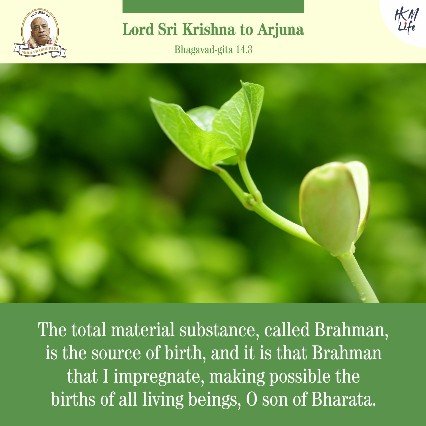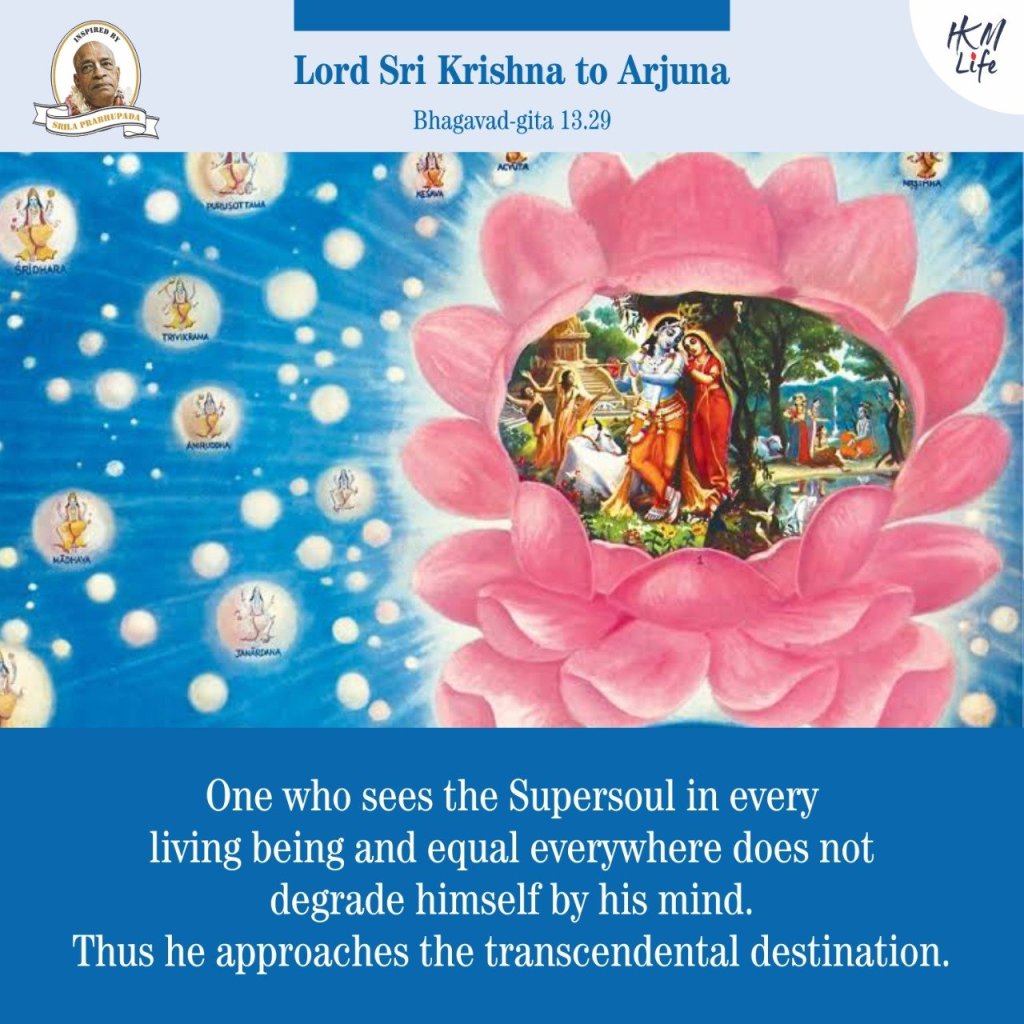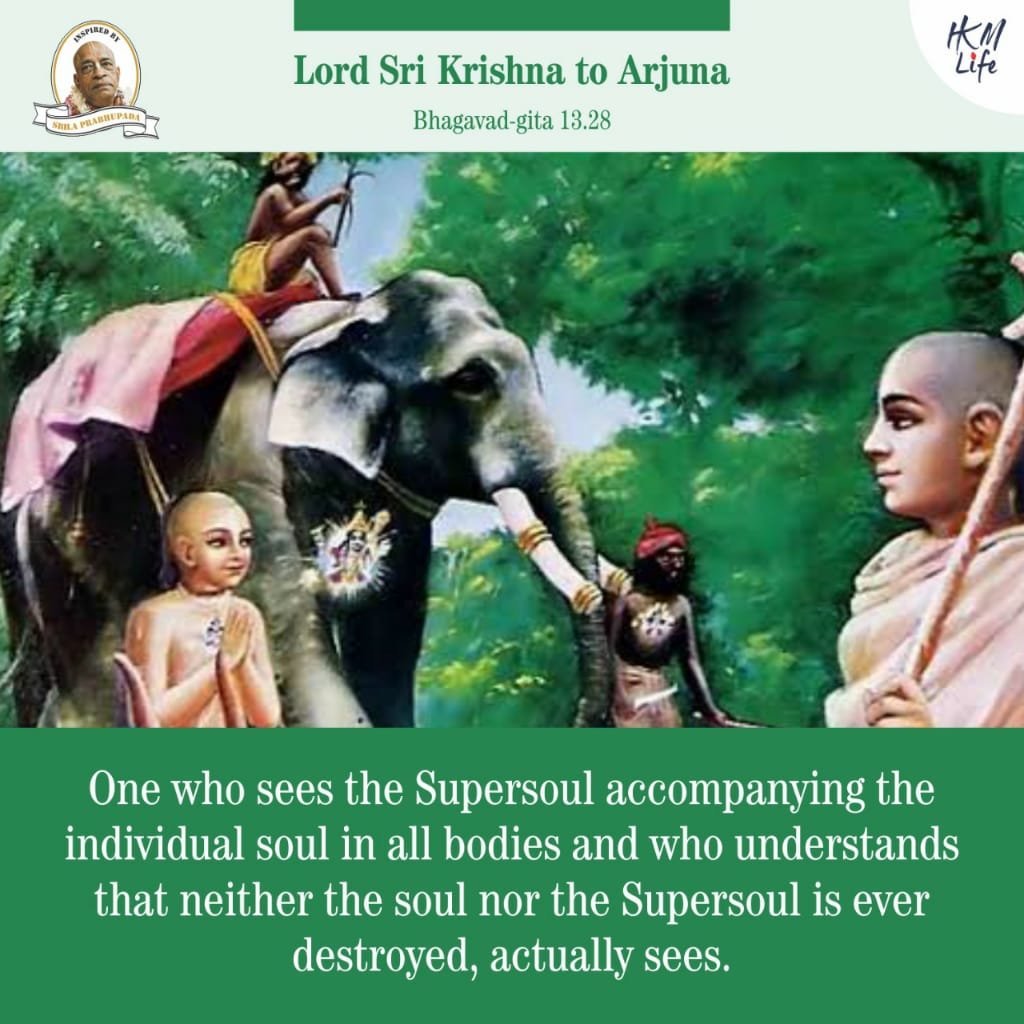
Bhagavad-Gita quote





The Lord is so kind that He takes all miserable conditions away from His devotees. Consequently He is called Hari. He is described as īśvara because He can do whatever He likes. He is the supreme controller.
The supreme īśvara puruṣottama is Lord Kṛṣṇa. He exhibits His powers as īśvara, or the supreme controller, when He assures His devotee in Bhagavad-gītā : “Abandon all varieties of religion and just surrender unto Me. I shall deliver you from all sinful reaction. Do not fear.” He can immediately make His devotee immune from all the reactions caused by sinful life if the devotee simply surrenders unto Him.
He is described herein as sarvātmā, meaning that He is present in everyone’s heart as the Supersoul, and as such He is the supreme teacher of everyone. If we are fortunate enough to take the lessons given by Lord Kṛṣṇa in Bhagavad-gītā, our lives immediately become successful. No one can give better instructions to human society than Lord Kṛṣṇa.
– extract from Srimad-Bhāgavatam 4.19.3 by Srila Prabhupada

The word kṛpaṇa-dhīḥ is significant in this verse. Dhī means “intelligence,” and kṛpaṇa means “miserly.” Conditional life is for persons who are of miserly intelligence or who do not properly utilize their intelligence.
In the human form of life the intelligence is developed, and one has to utilize that developed intelligence to get out of the cycle of birth and death. One who does not do so is a miser, just like a person who has immense wealth but does not utilize it, keeping it simply to see. A person who does not actually utilize his human intelligence to get out of the clutches of māyā, the cycle of birth and death, is accepted as miserly.
The exact opposite of miserly is udāra, “very magnanimous.” A brāhmaṇa is called udāra because he utilizes his human intelligence for spiritual realization. He uses that intelligence to preach Kṛṣṇa consciousness for the benefit of the public, and therefore he is magnanimous.
-extract from Srimad-Bhāgavatam 3.31.17 by Srila Prabhupada


